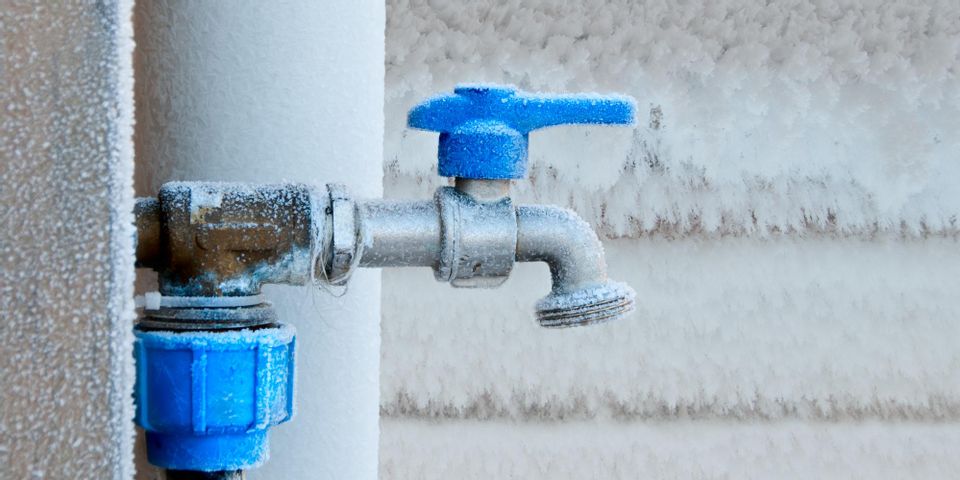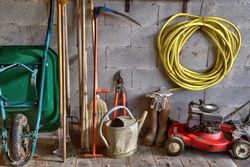
Most homeowners take many steps to prepare for winter, including cleaning out gutters and raking leaves. A lesser-known essential task involves winterizing outdoor plumbing, which only takes a few minutes but could prevent indoor flooding. Here’s what to know to protect your home this season.
What Can Happen If Hoses Aren’t Disconnected?
When outdoor hoses are turned off, some water may sit between the spigot and the hose entrance, even when there’s no spray nozzle attached. If you do have a nozzle, simply closing it to stop the flow of water also leaves moisture accumulated in the bib.
Water expands when it freezes, which can crack or break hose bibs and plumbing pipes. Frost can also spread as it develops, affecting the pipes in your home’s interior. When a pipe bursts, flooding can damage drywall, hardwood, carpet, and furniture. Water damage can also spark mold growth.
How Should You Winterize Bibs & Hoses?
 To prevent problems, disconnect all garden hoses in the winter. Wipe them down and check for cracks and tears, replacing any broken hoses so you have functional products come spring. Store them in a clean, dry shed or garage.
To prevent problems, disconnect all garden hoses in the winter. Wipe them down and check for cracks and tears, replacing any broken hoses so you have functional products come spring. Store them in a clean, dry shed or garage.
Protect hose bibs with foam insulated covers. These keep any remaining moisture from freezing within the bibs, preventing plumbing leaks. If you do experience a burst pipe or leak stemming from a bib, turn off the supply valve that feeds the hose and call a plumber.
To keep your plumbing in top shape year-round, turn to Miller Plumbing Inc. Based in Rush, NY, these dedicated plumbers have served residents of Monroe, Livingston, and Ontario counties for more than 50 years. If you experience a leak, they will provide same-day service to help prevent water damage. Learn more about their work by visiting their website, or call (585) 533-1404 to schedule an appointment.
About the Business
Have a question? Ask the experts!
Send your question

